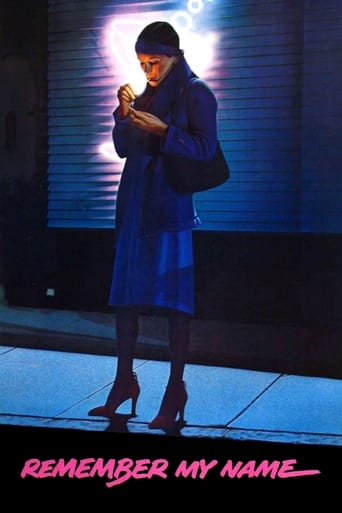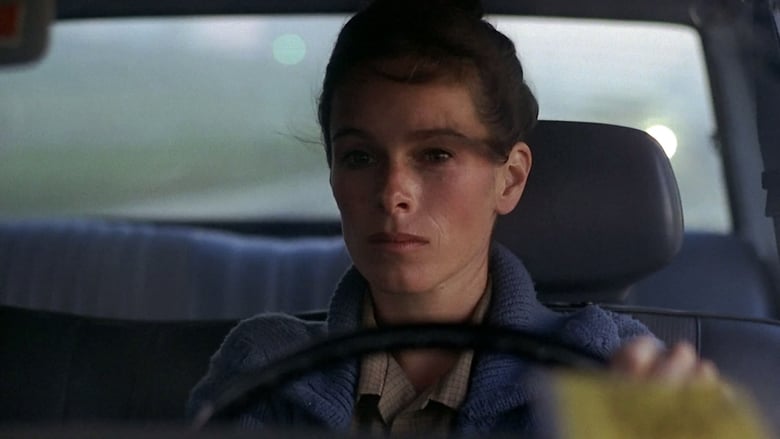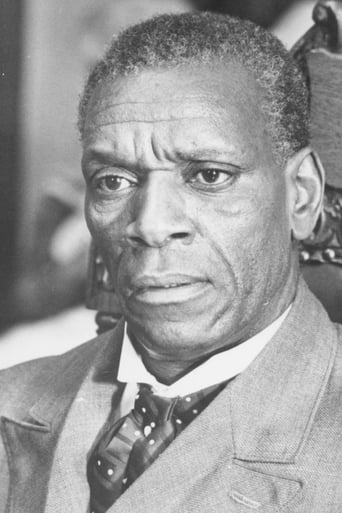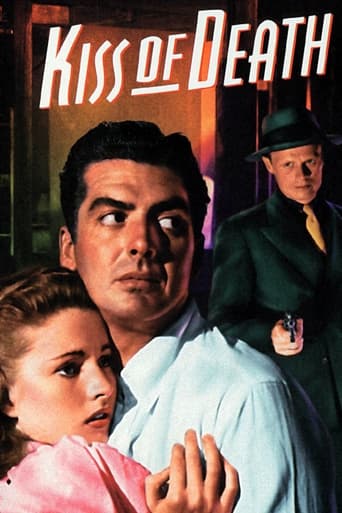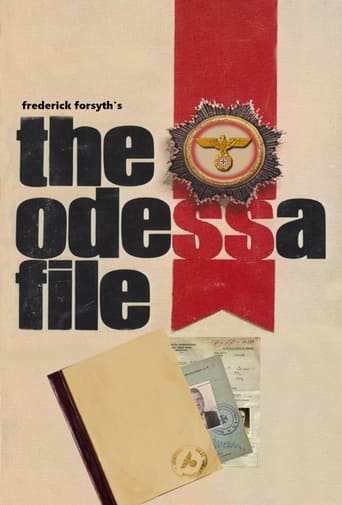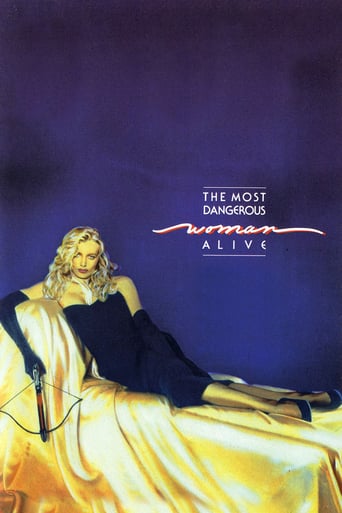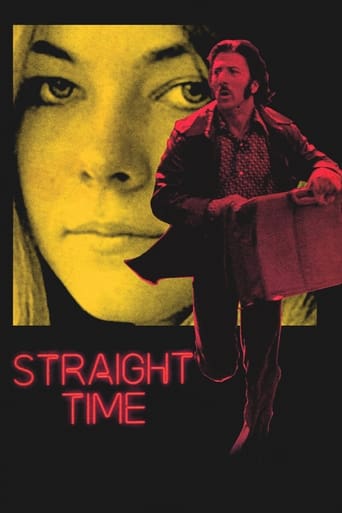Remember My Name (1978)
Just released from prison, a young woman arrives in town to "start a new life," but soon begins stalking a married construction worker for no apparent reason, turning his life inside out and eventually terrorizing him and his wife.
Watch Trailer
Cast


Similar titles
Reviews
hyped garbage
Excellent, Without a doubt!!
It's a good bad... and worth a popcorn matinée. While it's easy to lament what could have been...
The film never slows down or bores, plunging from one harrowing sequence to the next.
Although I liked for the most part "Remember My Name" and I am recommending it, I do agree with one critic's viewpoint that I read, that being that the movie is not for all tastes. I know that many viewers will probably be frustrated that the past of Chaplin's character (namely what she did in order to be imprisoned for years) is not fully spelled out. These same viewers will probably be also annoyed that the ending of the movie is left vague and with several plot threads not finished. But if you are a viewer who wants to see an unconventional look at stalking, the movie does have its rewards. For starters, it's a rare look at when the stalker is a woman and is stalking a man. And the performances are very good. Certainly, Chaplin gives a very good low key performance that all the same suggests serious mental disturbance, but Anthony Perkins also deserves kudos for playing a more "normal" type of character than usual, yet effectively. This is a slow moving drama, I admit, which also may throw off viewers. But if the plot description and cast interest you, and you are in a patient mood, you'll probably find the movie does have enough rewards.
"Remember My Name" is a fascinating character study with a towering performance by Geraldine Chaplin in the role of Emily, a deranged jailbird just let out of the slammer for a murder conviction. She unabashedly makes a beeline for her ex-husband Niel (Anthony Perkins) and overtly stalks him and his new wife, at one point even walking into their home and confronting the newlywed, Barbara (Berry Berenson).The unhinged nature of Emily is apparent in nearly all of her actions, as she embezzles from her employer, destroys property, attacks a co-worker, stabs the co-worker's boyfriend, and enlists a kind security guard in her psychopathic scheme to enact revenge on her ex-husband.But the film is boosted by the ambivalent characterization of Neil, who becomes just as creepy and disturbed as Emily. Perkins is outstanding as the callous womanizer, who, is as attracted to Emily as a moth to a flame.The film is multi-layered with nuances that approach or even surpass dark comedy. The recurring news broadcast of a cataclysmic earthquake in Hungary is a truly macabre backdrop for the sordid stalking activities of Emily. And Emily's connection to the mother of her boss at the thrift store includes the subtext of knowing that the boss's mother was also a murderer, with whom Emily forged a bond while spending time in the pokey.Audiences can debate the many ambivalent moments, nuances, and strange meeting of Neil and the security guard named Pike at the end of the film. Clearly, Neil and Pike have been had for suckers by wily and charismatic Emily. The tawdry settings and and recurring blues music are the final touches on a disturbing film experience. It is a fair assumption that both Neil and Pike will be remembering the name of the lovely little lady named Emily.
A woman is released from prison and then starts stalking a man. But why?Starring Anthony Perkins and Geraldine Chaplin.Written and directed by Alan Rudolph.This movie has such a promising premise but ultimately it's a frustrating watch.It did keep my interest and I was fascinated all the way through to know what was going on and why this strange woman was stalking the main protagonist and his wife. The stand out performance was by Geraldine Chaplin, she played a great part. Unfortunately Perkins was quite wooden and I wanted to poke his screen wife (Berry Berenson) with a very long stick to see if she was still alive. The ending was frustrating. I was hoping that all the loose ends would be tied up or we would at least get a decent twist, but I was left with more questions than answers. I usually don't mind open endings, but this one left me feeling short changed. What the heck actually happened at the end? What the heck happened in their relationship before she was locked up in prison?Too many unanswered questions and I really can't be bothered surfing any movie related message boards to find out. I'll move on to the next old movie.7/10
After serving twelve years in prison for murder, a young woman (Geraldine Chaplin) seeks out the man who was her husband (Anthony Perkins) at the time the murder was committed. Why would she do this? The background story to this film is almost better than what's actually in the movie, although the movie is not bad at all. The crucial point comes when Perkins' character tries to explain the situation to his present wife, played by interesting Berry Berenson, after she has already encountered the rather menacing part played by Chaplin, in a tense scene in which Chaplin enters their (Berenson's and Perkins') house while Berenson is cutting up Romaine lettuce for tonight's salad. After she (Chaplin's character) is arrested for breaking and entering, Perkins's character decides not to press charges and then must explain why to Berenson's character. It's at this point in this movie that you can begin to figure out Chaplin's character's motivations, which lie nearly concealed. In this murky light Chaplin's character isn't as crazy as it is made out to be in the script, although twelve years of prison have taught her a lot about how to go about the judicious use of aggression, guilt, and other persuasive characteristics. The ending comes up rather fast, though endings like this one cause reflection, and that reflection may lead to the conclusion that in actuality there was nothing left for her to accomplish. She drives off on the same road she entered when the film begins.

